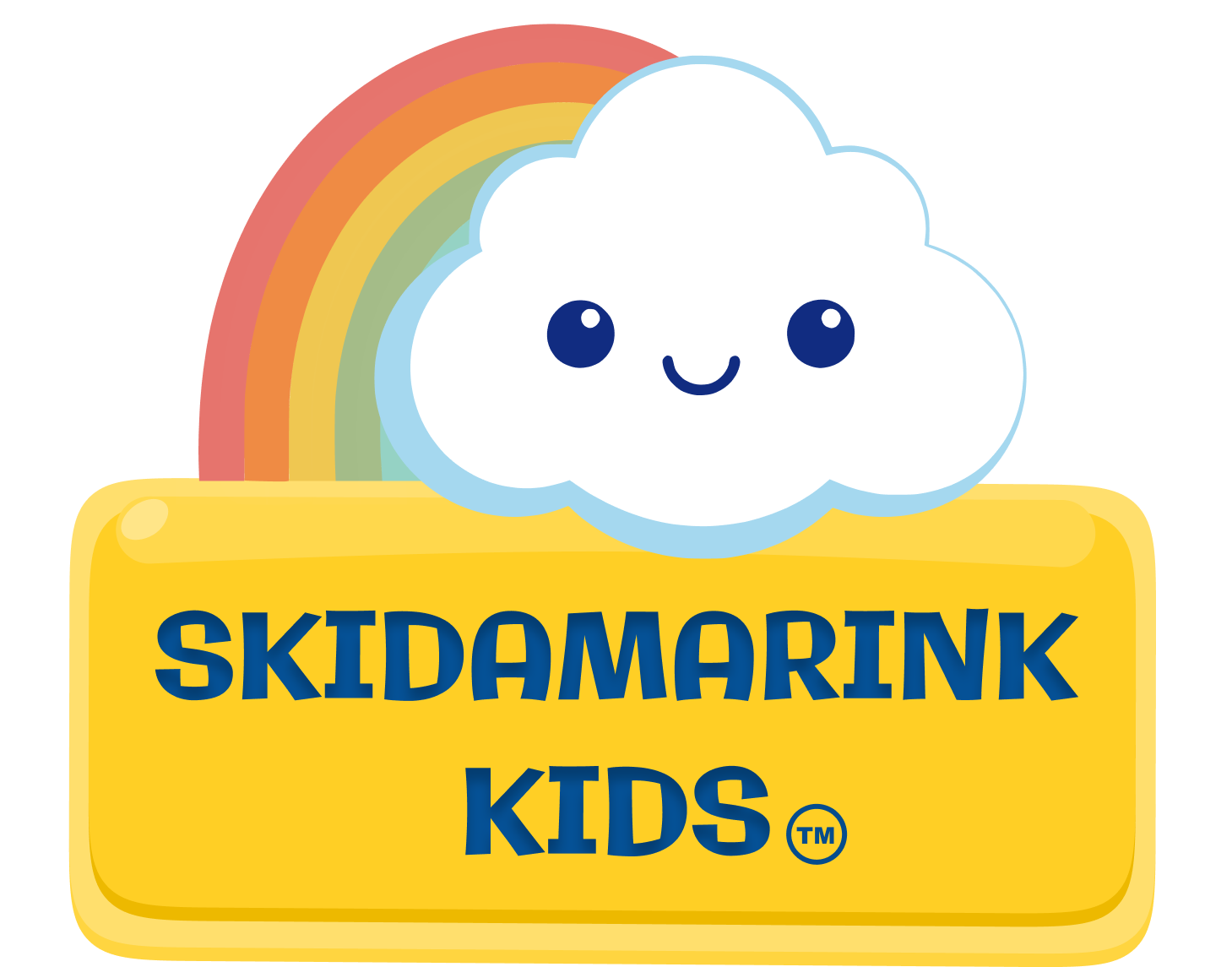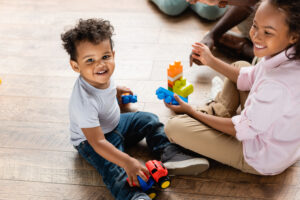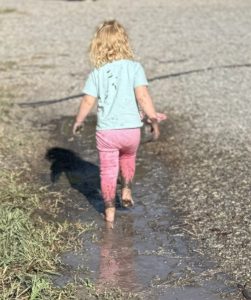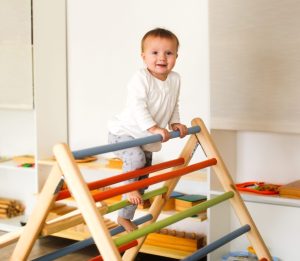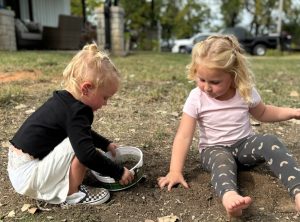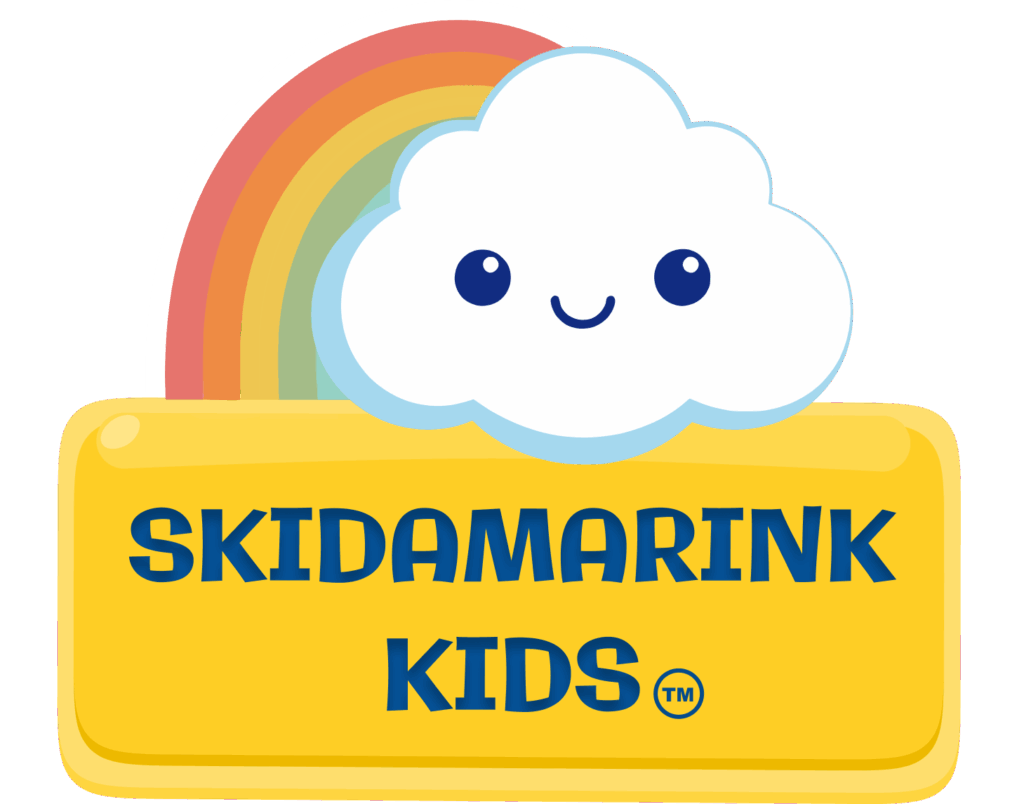Ever noticed how some days your child handles life’s ups and downs better than others? That’s self regulation at work! Self regulation activities help with mental control. They influence how children plan, focus, control behavior, and express emotions.
Here’s your guide to developing these critical life skills through simple, everyday play. These play based self regulation activities are organized by developmental stage. You can find exactly what works for your child right now.
Understanding Self Regulation Activities Through Play
As I discussed in Child Self Regulation: The Brain Balance Key to Success, self regulation acts as the brain’s “air traffic control system.” It helps children pause, think, and make good choices. When children struggle with these skills, they may have difficulty with impulse control, managing emotions, or focusing on tasks.
Why Play Works
Play is one of the most powerful ways to build these skills! Research from the Harvard Center on the Developing Child found something powerful. When childcare providers focused on self regulation activities instead of academics, they noticed fewer behavior challenges in their classrooms. Children who practiced these skills through play showed better self control than those in academic-focused settings.
Self regulation is part of executive functioning skills. Children aren’t born with these skills. They develop them over a lifetime through modeling, play, and guidance. We often treat kids as if they should know how to control their behavior. The truth is their brains need time and practice to gain the skills they need.
The Challenge Many Kids Face Today
Sadly, many kids today aren’t developing these critical skills. Social, environmental, and neurological factors get in the way. Lack of movement, early push for academics, and discipline focused on punishment over co-regulation all play a role. Chemicals in our foods, stressful lifestyles, and early screen time contribute to the problem too.
Through play, children practice controlling their bodies. They learn to manage their emotions. They practice working with others. These experiences strengthen the neural pathways that support self control.
Self Regulation Activities for Babies (6-18 Months)
During these early months, your baby is learning the basics of self control through play and interaction.
Simple Games That Build Focus
Peek-a-Boo and Hide-and-Seek do more than create giggles. They improve focus, working memory, and self control. Your baby learns that things exist even when they can’t see them. This is a big step in brain development!
Songs with Surprises like “This is the Way the Ladies Ride” engage attention and working memory. Babies learn to anticipate what comes next.
Interactive Movement Play
Help babies develop body awareness with these activities:
- Play “Row, Row Your Boat” with gentle rocking. Let them fall backwards onto your lap or a pillow to also develop balance.
- Encourage eye contact and tracking by moving around while making engaging sounds.
- Practice games like Pat-a-Cake to develop motor skills and imitation.
First Songs with Gestures
“Wheels on the Bus” and “Itsy Bitsy Spider” strengthen attention, imitation, coordination, and language. These are perfect because babies must watch, listen, and move their bodies all at once!
Simple Turn-Taking
Start with basic activities like putting a ball in a bucket or pressing a button. Take turns with your baby. This early practice with waiting builds the foundation for patience later.
Activities for Toddlers (18-36 Months)
As your toddler grows, they’re ready for more complex play. This is when impulse control really starts to develop!
Quality Connection Time
Spend focused time together walking, singing, or reading without distractions. This helps your toddler feel safe and connected. When children feel secure, they can practice self control better. Continue to encourage eye contact and tracking objects by moving around while making engaging sounds. Activities like these strengthen the “brake pedal” side of the brain that helps with impulse control.
Movement Games
Movement games are especially powerful for toddlers:
- Freeze Dance helps them practice stopping their body quickly. Play music and have your child dance. When you stop the music, model freezing by staying same position!
- “The Floor is Lava” improves focus and self control. Create safe spots to jump to. Your toddler must plan where to go next and control their movements.
- Dance Games like “Hokey Pokey” and “Head, Shoulders, Knees, and Toes” help with motor skills and body awareness. Knowing where your body is in space is important for self regulation!
Emotional Learning
Help your toddler understand feelings:
- Label feelings to promote emotional understanding (“You look sad”)
- Look at photos of people with different facial expressions to build mirror neurons needed for learning empathy
- Imitate animal noises and actions in an elaborate way to increase imitation skills
- Guide them through expressing emotions appropriately
As we discussed in Why Your Child Can’t Self Regulate: The Hidden Brain Issue, understanding emotions is a key part of the puzzle.
Pretend Play
Let your child take the lead in imaginative play. It’s fantastic for creativity and building self control! When children pretend, they practice controlling their impulses. They follow rules they create. They manage their emotions.
Simple Sorting
Turn organizing toys or snacks by color, size, or shape into a fun game. Sorting helps children practice focus and planning. These are important executive functioning skills!
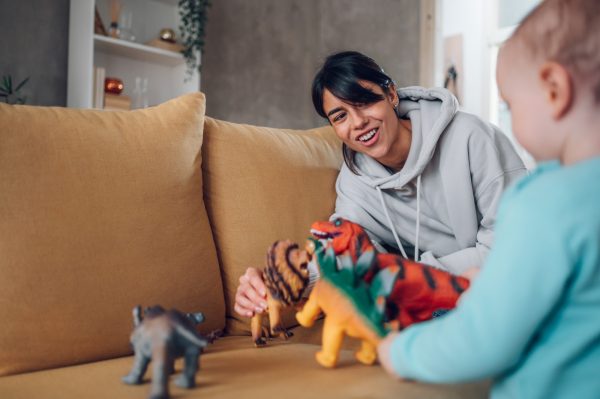
Activities for Preschoolers (3-5 Years)

Preschoolers are ready for activities that build independence.
Structured Independence
Gradually reduce guidance to help them develop self management skills. For example, instead of dressing your child completely, let them try first. Then help with the tricky parts. This builds confidence and self control.
Creative Play
Provide props for imaginative play scenarios. Dress up clothes, play kitchen items, and building blocks let preschoolers create their own worlds. Creative play helps children practice:
- Planning what happens next
- Following rules they create
- Managing frustration when things don’t work
- Working with others
Create and tell stories together to develop focus and sequencing skills. “What happened first? Then what? How did it end?” This helps children organize their thinking.
Musical Learning
Use repetitive songs that build complexity like “Five Green and Speckled Frogs.” These help children remember information and follow along.
Practice songs with lists like “The Alphabet Song” for memory skills and attention. Singing uses both sides of the brain, which helps with brain balance!
Movement Control
Preschoolers practice controlling their bodies with activities like:
Dance to Fast and Slow Music to practice adjusting movements for self control. “Can you move really slowly? Now fast! Now freeze!”
Navigate Simple Obstacle Courses by setting up pillows, chairs, and toys to crawl over, under, and around. This helps with focus and direction following.
Self-Regulation Activities for School-Age Children (5-7 years)
School age children benefit from more complex challenges. These prepare them for classroom success!
Game-Based Learning
Choose engaging games that offer a “just right” challenge level. Games that are too easy are boring. Games that are too hard cause frustration. The right level helps children practice persistence and self control.
Social Skills Development
Learn conflict resolution through techniques like flipping coins or drawing straws. Kids learn to:
- Accept outcomes they don’t like
- Take turns fairly
- Control their reactions when disappointed
Practice attention, following directions, and self control through games like:
- Freeze dance
- Musical chairs
- Red Light, Green Light
- Duck, Duck, Goose
- Mother May I?
Active Play
Try fast paced ball games like four square and dodgeball. Ball games require quick thinking, body control, following rules, and managing emotions when you’re out.
Play classic games like Simon Says. This game is perfect for practicing impulse control! Children must listen carefully and only move when they hear “Simon says.”
Participate in organized sports for teamwork and focus. Sports teach children to work together, follow a coach’s directions, and manage disappointment when they lose.
Challenge quick thinking with games like Slapjack or Perfection. Fast games help children practice controlling their impulses and managing excitement.
Important Tips for Success
Start Where Your Child Is
This guide is organized by ages. However, it’s beneficial to go by where your child actually is developmentally. Look at the skills for an age group or two below your child’s age. Make sure your child can do those skills before moving on.
If you need to start with younger skills, don’t get discouraged! The important thing is you’re meeting your child where they are. You’re giving them a great foundation for future success.
Age Ranges Are Just Guidelines
It’s perfectly okay to use activities from younger age groups. Focus on your child’s current skill level to build a good foundation. Some children need more time at each stage, and that’s normal!
Keep It Fun and Playful
Remember, these are learning disguised as play! The more fun you have, the more your child learns. When children are engaged and happy, their brains are calm and ready to build new skills.
Don’t worry if activities don’t go perfectly. Practice is what matters, not perfection. Celebrate effort and small improvements.
Be Consistent
Try to include some play activities in your daily routine. Even 10 to 15 minutes of focused play each day can make a difference. Consistency helps strengthen those neural pathways!
Closing Thoughts
As Albert Einstein said, “Play is the highest form of research.” Through these playful activities, you’re helping your child develop essential life skills. Your efforts will serve them well into the future.
Using age appropriate self regulation activities consistently is one of the greatest gifts you can give your child’s developing brain. You’re not just playing. You’re building the foundation for success in school, friendships, and life!
Want to Learn More?
Check out our companion blog, Everyday Self Regulation Activities: Build Skills Daily, for practical ways to incorporate these skills into your daily routine!
Visit the Harvard Center on the Developing Child’s website for their comprehensive Activities Guide: Enhancing and Practicing Executive Function Skills with Children from Infancy to Adolescence,
– Kendra
